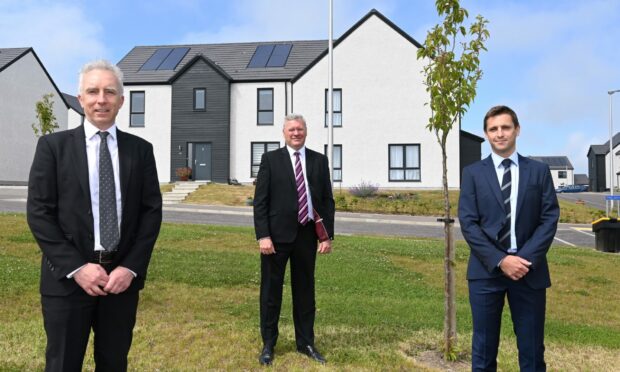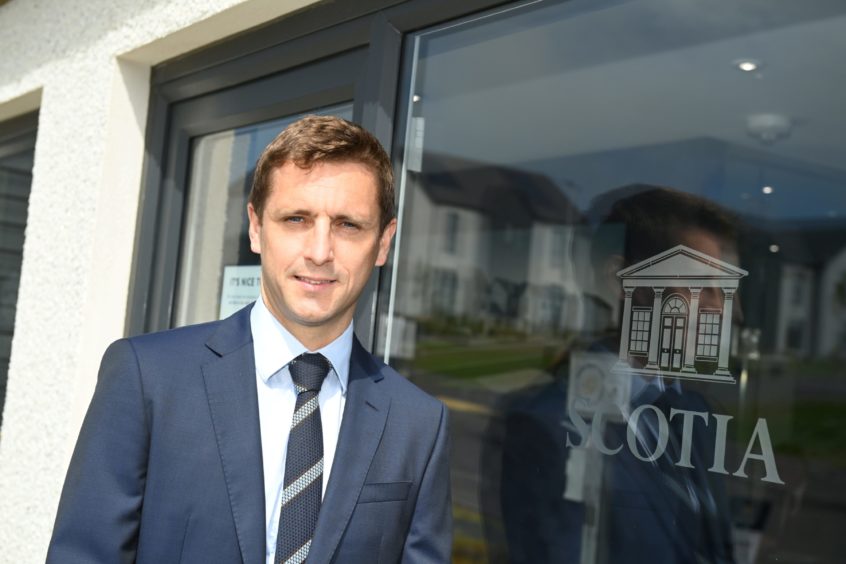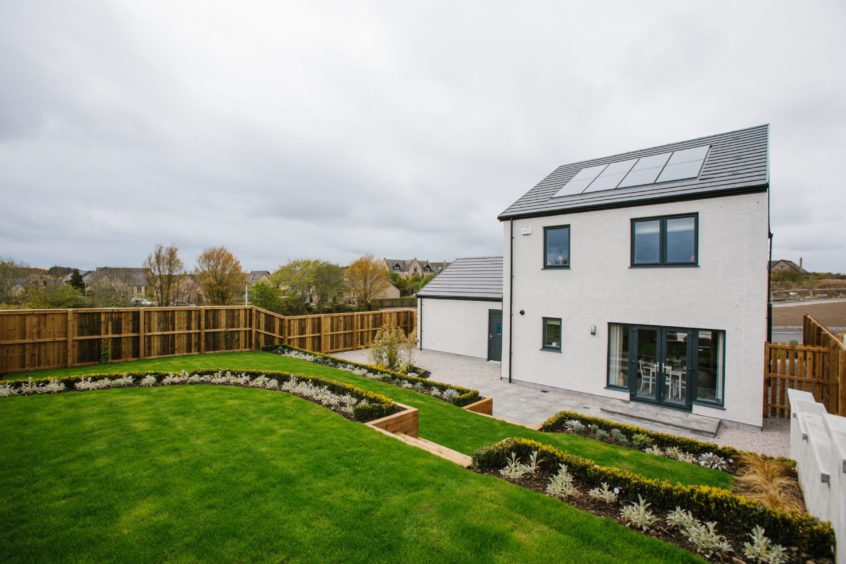North-east housebuilder Scotia Homes is planning further expansion into markets in the Highlands and on Tayside amid continued signs of homeowners wanting a post-lockdown move.
Managing director Martin Bruce said the Ellon-based firm already had a substantial landbank but was also on the hunt for more sites to meet an anticipated jump in demand for country living.
We have seen strong recovery in sales volumes and prices at our developments in the Highlands and Tayside.”
Martin Bruce, managing director, Scotia Homes
In addition, the company has announced the appointment of a land and development director, Graham Reid, previously Aberdeen-based regional development director with Savills, to play a leading role in driving future growth.
A qualified chartered surveyor, Mr Reid has enjoyed a varied career encompassing commercial surveying/valuation, banking and housebuilding prior to joining Savills to help establish its Aberdeen office in 2015.
He is now responsible for Scotia’s land acquisition strategy, as well as its affordable housing delivery, product development and new home designs.
Mr Reid said: “Whilst the economic conditions remain challenging, Scotia has weathered the storm extremely well and is one of the strongest privately-owned housebuilders in Scotland.”
Scotia chairman Gary Gerrard said the “wealth of experience” of the new addition to Scotia’s boardroom team would be “invaluable to the business as we continue our growth strategy”.
The firm aims to double its annual new home completions to 350 over the next three years, fueled by recent acquisitions of development sites in the Cairngorm National Park and Perthshire/Angus areas.
Scotia has weathered the storm extremely well and is one of the strongest privately-owned housebuilders in Scotland.”
Graham Reid, land and development director, Scotia Homes
Scotia has current and future developments in Aberdeen, Arbroath, Aviemore, Blairgowrie, Brechin, Ellon, Forfar, Inverkeilor, Inverness, Kingussie, Kintore, Nairn, Newburgh, Oldmeldrum, and Perth.
Accounts just lodged at Companies House reveal the impact of Covid-19 on the business during the 14 months to June 30 2020, with the firm having changed its year-end to match that of it’s parent.
Pre-tax losses came in at £13.1 million, compared with profits of more than £3.5m in the previous 12 months. Turnover for the latest period totalled around £37m, against £35.4m in the 2018-19 trading year, but was down by 10% on an annualised basis.
‘Substantial headroom’
Results were also impacted by a £13.6m write-down on the value of Scotia’s landbank and work-in-progress, against a backdrop of the pandemic and a collapse in oil prices.
Scotia was forced to put nearly all its workforce on furlough and make 29 people redundant last year, but headcount is now back up to the pre-pandemic level of about 190.
Mr Gerrard said the firm’s balance sheet was strong, with net assets of £17.2m, bank debt of £5.74m, at year-end, as well as “substantial headroom” available to support growth.
Covid-19 ‘hugely affected’ 2019-20 trading performance
Mr Bruce, who founded Scotia in 1990, together with his late father, Bill Bruce, said: “The impact of the Covid-19 pandemic has been unprecedented; the UK-wide lockdown in the spring of 2020 saw our whole business closed for almost three months and this hugely affected our trading performance for the period ended June 30 2020.
“Since our financial year-end, our sales performance has been much improved as lockdown has encouraged customers to prioritise moving home, placing increased importance on outdoor space and additional rooms for homeworking.”
Scotia’s MD added: “The Aberdeen and north-east market has shown some signs of stabilisation as prices have fallen to more sustainable and affordable levels. We have seen strong recovery in sales volumes and prices at our developments in the Highlands and Tayside.”
New home completions increased slightly in the latest period to 182 units, from 169 in the previous year, reflecting higher activity levels seen during the second half of 2019.
Scotia – previously controlled by the Bruce family – is now owned by Camlin Group, a joint venture of property entrepreneurs Bruce Linton and David Cameron, who acquired the business last year for an undisclosed sum. The size of Camlin’s majority stake was also undisclosed.
Mr Linton is the businessman behind Dundee-based James Keiller Holdings. Mr Cameron has other property interests and is a director of Inverness Caledonian Thistle FC.


